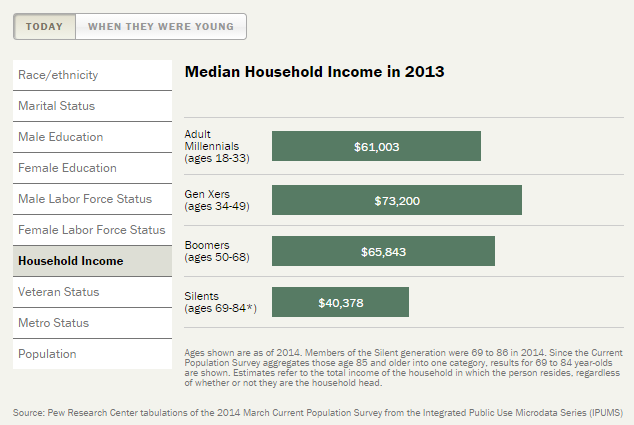The Nonprofit Tech for Good website has gathered up some research on Generation X:
Grantmakers in the Arts
From the closing plenary of the Skoll World Forum, Darren Walker, president of the Ford Foundation, spoke about The Art of Change, a new initiative that will examine the roles art and culture play in illuminating and addressing urgent issues of equity, opportunity, and justice:
Featured in the current Reader, an article by Jennifer C. Lena and Erin F. Johnston examines cultural engagement with global Muslim communities.
Twenty-six performing arts institutions from across the U.S. have been selected to take part in The Wallace Foundation’s Building Audiences for Sustainability effort a new, six-year, $52-million initiative aimed at developing practical insights into how arts organizations can successfully expand their audiences, the foundation has announced.
In January, the President’s Committee on the Arts and the Humanities (PCAH) released the results of an independent study that shows substantial gains in student achievement at schools participating in its Turnaround Arts initiative. The eight schools in the pilot phase of the initiativeshowing increases in reading and math scores, as well as an increase in attendance and a decrease in suspensionsdemonstrate that the program’s use of the arts is having a measurable impact on low-performing schools by increasing student engagement and narrowing the achievement gap.
From Seth Lepore, posting to HowlRound:
Featured in the current Reader, an article by Terence E. McDonnell and Steven J. Tepper examines the use of metaphor to defend cultural organizations under the threat of closing.


